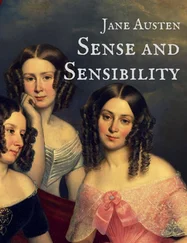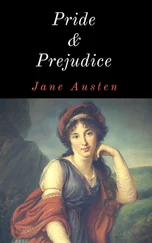John Ashton - English Caricature and Satire on Napoleon I. Volume I (of 2)
Здесь есть возможность читать онлайн «John Ashton - English Caricature and Satire on Napoleon I. Volume I (of 2)» — ознакомительный отрывок электронной книги совершенно бесплатно, а после прочтения отрывка купить полную версию. В некоторых случаях можно слушать аудио, скачать через торрент в формате fb2 и присутствует краткое содержание. Жанр: foreign_antique, foreign_prose, на английском языке. Описание произведения, (предисловие) а так же отзывы посетителей доступны на портале библиотеки ЛибКат.
- Название:English Caricature and Satire on Napoleon I. Volume I (of 2)
- Автор:
- Жанр:
- Год:неизвестен
- ISBN:нет данных
- Рейтинг книги:4 / 5. Голосов: 1
-
Избранное:Добавить в избранное
- Отзывы:
-
Ваша оценка:
- 80
- 1
- 2
- 3
- 4
- 5
English Caricature and Satire on Napoleon I. Volume I (of 2): краткое содержание, описание и аннотация
Предлагаем к чтению аннотацию, описание, краткое содержание или предисловие (зависит от того, что написал сам автор книги «English Caricature and Satire on Napoleon I. Volume I (of 2)»). Если вы не нашли необходимую информацию о книге — напишите в комментариях, мы постараемся отыскать её.
English Caricature and Satire on Napoleon I. Volume I (of 2) — читать онлайн ознакомительный отрывок
Ниже представлен текст книги, разбитый по страницам. Система сохранения места последней прочитанной страницы, позволяет с удобством читать онлайн бесплатно книгу «English Caricature and Satire on Napoleon I. Volume I (of 2)», без необходимости каждый раз заново искать на чём Вы остановились. Поставьте закладку, и сможете в любой момент перейти на страницу, на которой закончили чтение.
Интервал:
Закладка:
Thus stood things at the end of 1797, a year which left the public pulse – the Three per Cent. Consols – at 49 (they had, in September, dropped to 47-7/8), and the quartern loaf about eightpence all the year through.
CHAPTER IX
In 1798 the caricatures with regard to the relations between France and England became more numerous, and in this year the personal entity of Napoleon is confessed, and his likeness, a somewhat rough one, but still recognisable, is established. An early one in this year is, the ‘Storm Rising, or the Republican Flotilla in danger,’ Feb. 1798, by Gillray. Fox, Sheridan, the Duke of Bedford, and Mr. Tierney are represented as working a windlass, which is used to pull over the Flotilla. This is represented by a huge raft bristling with cannon; a large fort is in the centre, and minor ones all around which bear flags inscribed ‘Liberty, Atheism, Blasphemy, Invasion, Requisitions, Plunder, Beggary, Murder, Destruction, Anarchy, and Slavery. It is represented as coming from Brest, where the devil is seen dancing on a guillotine, fiddling, and singing, “Over de Vater! over de Vater to Charley!”’ Fox’s coat lies on the ground, together with a paper, a ‘List of the New Republican Ministry. Citizen Volpone (Fox) Premier.’ Their designs, however, are being defeated by Pitt, who as Eolus, is raising a storm, and blowing against the Flotilla, the Admirals Duncan, Curtis, Howe, Gardiner, Trollope, Colpoys, St. Vincent, Seymour, Parker, and Onslow. A somewhat similar idea was worked out in a caricature by Isaac 36 36 He was the father of our great caricaturist, George; but there is little doubt from the internal evidence of the pictures, that George either wholly produced, or materially helped in the execution of many caricatures signed with his father’s name.
Cruikshank, January 28, 1789.
In March Sir John Dalrymple drew, and Gillray etched, a series of four caricatures. The first was called the ‘Consequences of a successful French Invasion,’ and it shows the French clearing out the House of Commons, and the members in fetters. The second engraving is, ‘We explain de Rights of Man to de Noblesse.’ Paine’s doctrines are being carried out in far more than their entirety. A guillotine takes the place of the throne, and the French commander orders, à la Cromwell, one of his men, ‘Here, take away this bauble! but if there be any gold on it take it to my lodging.’
The next one is a slap in the face for Ireland, and is called, ‘We fly on the wings of the wind to save the Irish Catholics from persecution,’ and French sympathy is shown by a priest being stabbed, and the holy vessels trampled on.
The fourth is ‘Me teach de English Republicans to work,’ and the French are represented as cruel taskmasters. Men and women are put to work in the fields, and Republicans, with fearful whips, keep them up to the mark of efficiency. Others are harnessed to a plough, and are kept well to their work by a most cruel lash.
Napoleon gave up all idea of invading England, and in May the expedition to Egypt was formed.
Fox’s French proclivities are shown in a caricature (the Shrine of St. Anne’s Hill, 37 37 Fox’s residence.
May 26, 1798, Gillray) where he is seen on his knees before an altar, on which are a cap of liberty, and two busts of Robespierre and Buonaparte. The reredos is composed of a guillotine, and the tables of the ten commandments are labelled ‘Droit de l’homme. 1. Right to worship whom we please. 2. Right to create and bow down to anything we chuse to set up. 3. Right to use in vain any name we like. 4. Right to work 9 days in the Week and do what we please on the tenth. 5. Right to honor both Father and Mother when we find it necessary. 6. Right to Kill. 7. Right to commit Adultery. 8. Right to Plunder. 9. Right to bear what Witness we please. 10. Right to covet our Neighbour’s house and all that is his.’ Nichols, Tierney, Lauderdale, Bedford, Lansdowne, and Norfolk, appear in the upper background as Cherubin.
When the invasion panic was abroad, patriotism was rampant, and everybody was very brave – on paper. This was the sort of stuff the people were fed on, of which I will give but two or three verses out of the eight. 38 38 The True Briton , May 11, 1798.
While deeds of Hell deface the World,
And Gallia’s throne in ruin lies,
While round the Earth revolt is hurl’d,
And Discord’s baneful Banner flies —
Loud shall the loyal Briton sing
To arms! to arms! your bucklers bring,
To shield our Country, guard our King,
And George and England save.
Ne’er shall the desolating Woe
That shades with horror Europe o’er,
To us her hideous image shew,
Or steep in blood this happy shore;
Firm as our rock-bound Isle we’ll stand,
With watchful eye and iron hand,
To wield the might of Britain’s land,
And George and England save.
Oh, happy Isle! wise order’d State!
Well temper’d work of Freedom’s hand!
No Shock of Realms can touch thy fate,
If Union bind thy sea-girt Land!
Vainly the storms shall round thee ring,
While Britain’s sons in concord sing,
We’ll shield our Country, guard our King
And George and England save.
To give some idea of the commotion caused by the threat of invasion, and yet not to be wearisome on the subject, I will only give the warlike items in the number of the True Briton , from which the above verses are taken, and which may be accepted as a fair sample. ‘We understand that the Duke of Bedford has received an answer from his Royal Highness the Commander in Chief to his offer of service, that it would be highly acceptable to the Government if he would exert his influence in Devonshire for the defence of the Coast.’ ‘His Grace the Duke of Grafton has not only offered to furnish his waggons and horses to Government, in case of emergency, but has also expressed his desire to encourage all his neighbours and tenants to assist with their persons and teams as far as may be in their power.’ ‘Last week there was a respectable Meeting of the Inhabitants of Stowmarket, at which it was unanimously agreed to form a Volunteer Corps of Infantry for the defence of that Town and Hundred.’ ‘In the county of Bedford, Lord Ongley, Mr. Trevor, and Mr. Whitbread, raise, each of them, a troop of Yeomanry. The town of Bedford raises a troop of Volunteer Cavalry.’ ‘A Meeting was held at Newmarket on Sunday last, after Divine Service, for aiding Government in case of Invasion, pursuant to the Regulations of Mr. Dundas’s Defence Bill; when the Inhabitants all came forward in a very laudable manner for that purpose, and most of the labourers offered their services as pioneers, or in any other capacity that may be deemed necessary.’ ‘The farmers of the Parish of Tarvin, in Cheshire, have set a noble example to their brethren throughout the Kingdom, in having entered into an agreement that they will, at a moment’s notice, in case of actual invasion, or imminent danger thereof, furnish their respective teams, with able horses and drivers, for the service of Government, free from any payment or gratuity whatever; and the number of each which they bind themselves to furnish, are 39 waggons, 68 carts, 347 horses, and an adequate number of drivers.’
This is the voluntary, patriotic side of the question; take next day’s paper, and we see, ‘There was a sharp press from the ships in Yarmouth Roads on Tuesday evening, by which means some good Seamen were procured.’
Читать дальшеИнтервал:
Закладка:
Похожие книги на «English Caricature and Satire on Napoleon I. Volume I (of 2)»
Представляем Вашему вниманию похожие книги на «English Caricature and Satire on Napoleon I. Volume I (of 2)» списком для выбора. Мы отобрали схожую по названию и смыслу литературу в надежде предоставить читателям больше вариантов отыскать новые, интересные, ещё непрочитанные произведения.
Обсуждение, отзывы о книге «English Caricature and Satire on Napoleon I. Volume I (of 2)» и просто собственные мнения читателей. Оставьте ваши комментарии, напишите, что Вы думаете о произведении, его смысле или главных героях. Укажите что конкретно понравилось, а что нет, и почему Вы так считаете.












